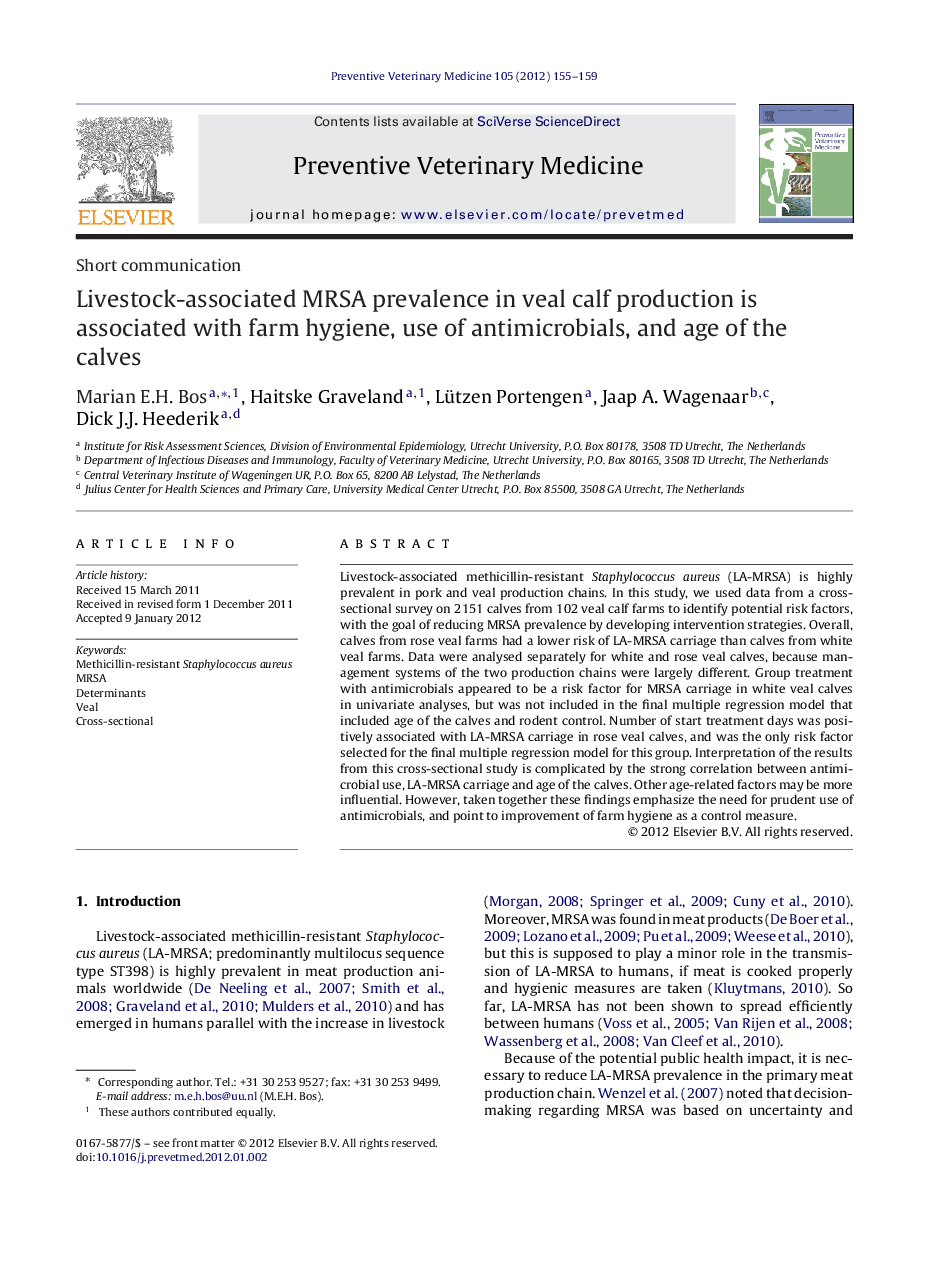| Article ID | Journal | Published Year | Pages | File Type |
|---|---|---|---|---|
| 5794077 | Preventive Veterinary Medicine | 2012 | 5 Pages |
Abstract
Livestock-associated methicillin-resistant Staphylococcus aureus (LA-MRSA) is highly prevalent in pork and veal production chains. In this study, we used data from a cross-sectional survey on 2151 calves from 102 veal calf farms to identify potential risk factors, with the goal of reducing MRSA prevalence by developing intervention strategies. Overall, calves from rose veal farms had a lower risk of LA-MRSA carriage than calves from white veal farms. Data were analysed separately for white and rose veal calves, because management systems of the two production chains were largely different. Group treatment with antimicrobials appeared to be a risk factor for MRSA carriage in white veal calves in univariate analyses, but was not included in the final multiple regression model that included age of the calves and rodent control. Number of start treatment days was positively associated with LA-MRSA carriage in rose veal calves, and was the only risk factor selected for the final multiple regression model for this group. Interpretation of the results from this cross-sectional study is complicated by the strong correlation between antimicrobial use, LA-MRSA carriage and age of the calves. Other age-related factors may be more influential. However, taken together these findings emphasize the need for prudent use of antimicrobials, and point to improvement of farm hygiene as a control measure.
Related Topics
Life Sciences
Agricultural and Biological Sciences
Animal Science and Zoology
Authors
Marian E.H. Bos, Haitske Graveland, Lützen Portengen, Jaap A. Wagenaar, Dick J.J. Heederik,
